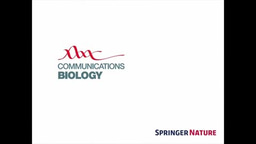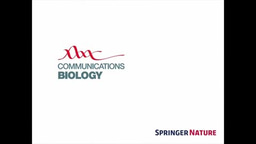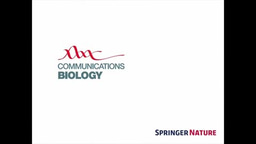Neuroscience at Communications Biology: December Board Member Spotlight
Published in Neuroscience

In our final board member spotlight post of 2022, we talk to Professor Jacqueline Gottlieb...
Q: Please tell us about your main research interests
I want to understand how people make decisions and how they process information relevant to those decisions. Much of my work probes how we become interested in specific sources of information and how we control our attention to learn or understand a particular situation. I examine this process, which I call “information demand”, on multiple scales, ranging from small-scale decisions about where to look to broader concepts of curiosity and their relationship to personality traits. I take an interdisciplinary approach that includes, in humans, behavioral testing and modeling and brain imaging using fMRI and EEG and, in animals, neurophysiological recordings of neural activity and neurotransmitter release. Using these tools, I hope to shed light on the interface between what have been two separate domains of research: cognition on one hand and motivation and decision making on the other.

Q: Why do you serve as a board member for Communications Biology?
I believe that newer journals like Communications Biology provide a critical service to the research community. In my field of neuroscience, demand for reputable journals outpaces supply and there is an urgent need for new venues for rigorous research. I am particularly keen on attracting research at the circuit and behavioral/computational levels, and increasing the visibility of the journal among neuroscientists in these fields. I am very excited to showcase neuroscience in the context of broader biological science research.
Q: What type of content/topics do you get most excited about handling?
I am happy to handle any and all papers pertaining to the links between neural activity and behavior. My interests include all cognitive and sensory systems. They range from circuit mechanisms of innate behaviors (e.g., feeding or locomotion) to computational and neural mechanisms of information processing and decision making in complex situations. My particular expertise is on eye movements and visual attention, which have been extraordinarily helpful platforms for understanding the neural basis of complex cognitive processes in lower animals as well as humans and monkeys. As such, I would like to take this opportunity highlight the The Gordon Research Conference on Eye Movements, a premier international research conference that will take place on July 2023 in Mount Holyoke College in Massachusetts, USA. Registration is now open; junior investigators are particularly encouraged to apply!
** Registration is open for The Gordon Research Conference on Eye Movements in Mount Holyoke College in Massachusetts July 9-14 2023
The Gordon Research Conference on Eye Movements is a premier, international conference showcasing cutting edge research on all aspects of eye movement control. Unfolding on the bucolic campus of Mount Holyoke College in Massachusetts, the conference emphasizes network-building and interactions between young trainees and renowned established scientists. Trainees will have extensive opportunities to interact with established scientists in a relaxed informal setting, present posters, and participate in a 2-day Gordon Research Seminar preceding the main meeting. The 2023 conference includes single-track presentations on eye muscle anatomy and physiology, multisensory integration, reference frames and cognitive control for navigation and exploration, and more. Each topic will be examined from an interdisciplinary perspective covering behavioral, computational, biological and clinical aspects. Researchers from diverse backgrounds are particularly encouraged to apply. The conference provides unparalleled opportunities to learn, share emerging findings and build new interdisciplinary collaborations on all aspects of oculomotor research.
For registration and more information, see
Follow the Topic
-
Communications Biology

An open access journal from Nature Portfolio publishing high-quality research, reviews and commentary in all areas of the biological sciences, representing significant advances and bringing new biological insight to a specialized area of research.
Your space to connect: The Psychedelics Hub
A new Communities’ space to connect, collaborate, and explore research on Psychotherapy, Clinical Psychology, and Neuroscience!
Continue reading announcementRelated Collections
With Collections, you can get published faster and increase your visibility.
Forces in Cell Biology
Publishing Model: Open Access
Deadline: Apr 30, 2026
Signalling Pathways of Innate Immunity
Publishing Model: Hybrid
Deadline: May 31, 2026





Please sign in or register for FREE
If you are a registered user on Research Communities by Springer Nature, please sign in